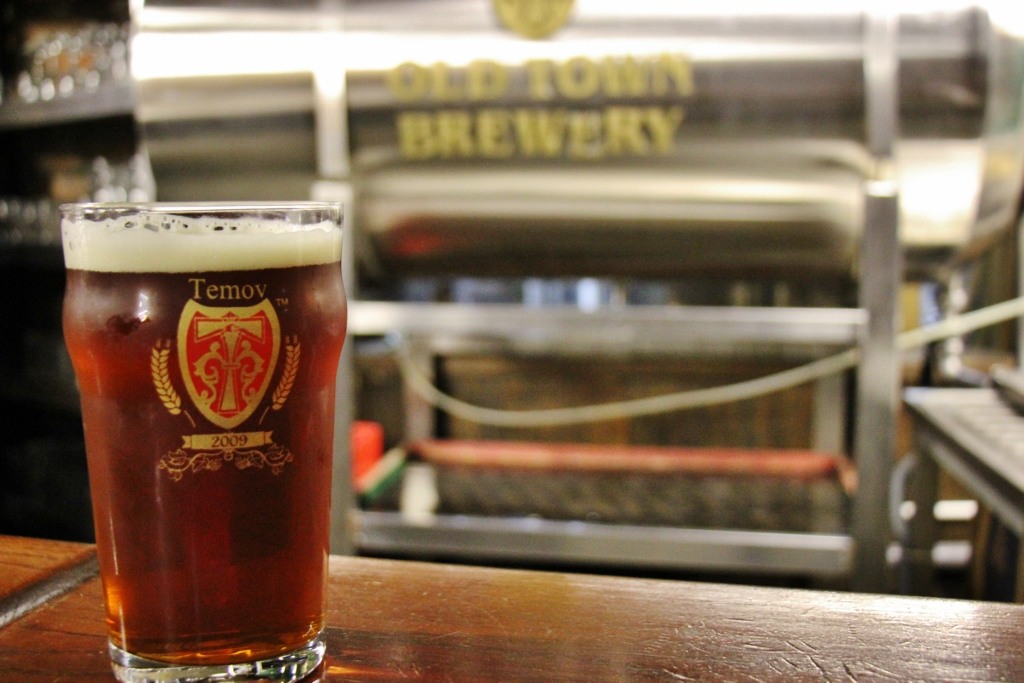
But when the food arrived, it was uniformly hardy, cheap and mostly healthy. Used to waiters eager for tips, I was often frustrated by the slow service in Macedonia. Afterward, I had lunch with some friends on the balcony overlooking the vineyard's 17 acres of grapevines with sun-dappled mountains in the distance.
.jpg)
The 20-minute tour of the six-year-old Popova Kula winery included a trip to an underground tank room outfitted with the latest Italian-made machinery. The vineyard visits and leisurely meals were a way to soak in a country that has not been overrun by crowds, expectations or high prices. For me, a casual traveler and an even more casual wine drinker, that was beside the point. Producing world-class wines takes decades, and by the vintners' own admission, their vintages are a work in progress.
.jpg)
Like Grkov, Bovin, Stobi and the other vineyards I visited, Popova Kula produces several white wines that lean to the dry side, and a growing number of richer reds, the most notable of which are made from vranec and stanushina grapes, two local varieties. Demir Kapija, a town at the center of the wine country, is roughly halfway between Belgrade and Athens. The area is easy to reach for those staying in Skopje, 70 miles to the north, or for travelers driving between the other Balkan countries and Greece. He built his winery in the Tikves Valley, Macedonia's wine belt, huddled around the Vardar River, which bisects the country north to south. Perhaps no one is doing more to realize that goal than Jordan Trajkov, the founder of the Popova Kula Winery.Ī former investment banker with an MBA, Trajkov modeled Popova Kula after the vineyards he saw in California's wine country. With a little research and access to a car, I visited several new wineries that, their owners hope, will one day form the core of a thriving eco-tourism industry. So we're modest and not good at marketing." "We're not market oriented, we're ex-socialist. "There's a huge wine culture here, but we take it for granted," said Jovanka Cvetkova, the winemaker at Winery Grkov. While Croatian and Bulgarian wines have made inroads on the international stage, Macedonia is still known mostly as a maker of bulk wine that is repackaged and sold in British and German supermarkets. They are so ubiquitous that many families make their own stash.ĭespite the abundance of grapes, the sluggish economy and decades of socialist rule (when the government controlled production and distribution) have stunted the development of a sophisticated wine industry. Thanks to an abundance of sunshine, Mediterranean and continental breezes and rich rocky soil, wine grapes thrive in Macedonia. Wine, it turns out, has played a central role in Macedonia at least since Roman times, when the ruling emperors favored its grapes. That's why I was glad to discover several new and vibrant vineyards that provided an easy, inexpensive excuse to see Macedonia's countryside. Even the country's biggest tourist destination, Lake Ohrid, a tranquil lake on the Albanian border, attracts far fewer tourists than swarm places like Venice.īeautiful landscapes alone are rarely enough to satisfy travelers. Macedonia has been a crossroads for about as long as it's been on a map, a tapestry of cultures and conquerors, some evident in the many archaeological sites in the capital, Skopje, and along seemingly every roadside stop.Īs I learned on a visit this spring, Macedonia's best face is outside its cities, where snowcapped mountains, picturesque lakes and villages hidden in steep valleys evoke a lost kingdom.

Other than a smattering of castles and a few colorful bazaars, the country's cities are unexceptional.īut those who travel there are often surprised by its rustic charm and multilayered history. Unlike Croatia, with its stunning coastline, or Sarajevo, with its airy hills, Macedonia has struggled for the world's attention since gaining independence in 1991 and lacks the allure of a must-see destination.

For centuries, it seemed to be part of someplace else, including, until two decades ago, Yugoslavia. Land-locked Macedonia often feels like a forgotten place, tucked among Greece, Albania, Kosovo, Serbia and Bulgaria.


 0 kommentar(er)
0 kommentar(er)
